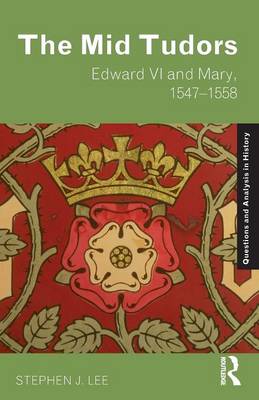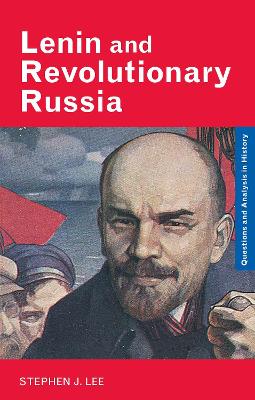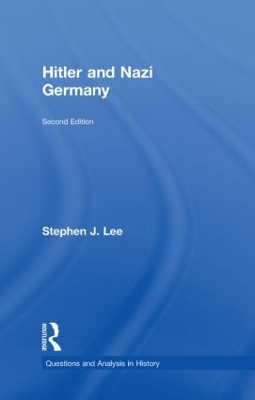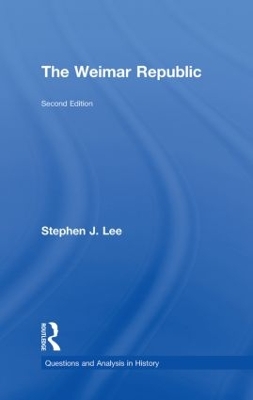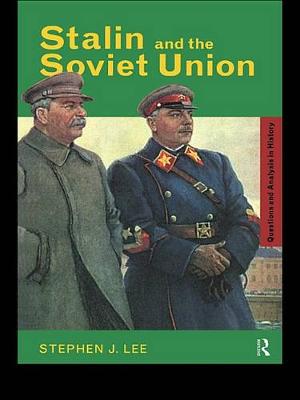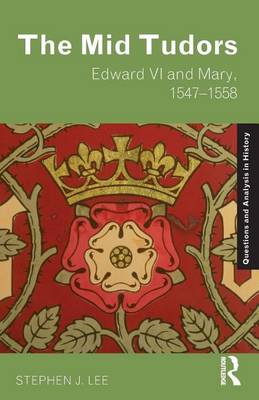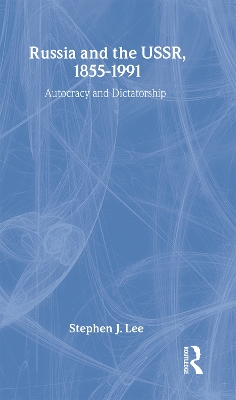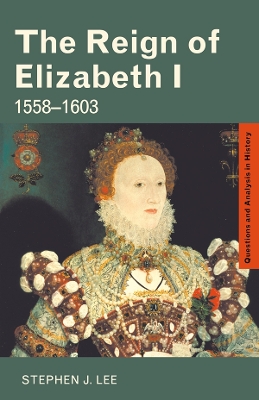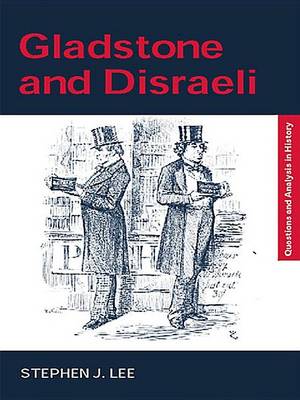Questions and Analysis in History
1 primary work • 10 total works
Book 1
Covering the period from 1547 to 1558, The Mid Tudors explores the reigns of Edward VI and Mary. Stephen J. Lee examines all the key issues debated by historians, including the question as to whether there was a mid-Tudor crisis. Using a wide variety of sources and historiography, Lee also looks at the Reformation and the Counter Reformation, as well as discussing government and foreign policy. The book starts with a chapter on Henry VIII to establish the overall perspective over the following two reigns – thereby providing a basis to examine their positive as well as negative features.
Including both a chronology and glossary of key terms, this essential A Level book provides a vital resource for all students of this fascinating period of British history.
Lenin and Revolutionary Russia examines the background to and the course of the Russian Revolution of 1917 and Lenin's regime. It explores all the key aspects such as the development of the Bolsheviks as a revolutionary party, the 1905 Revolution, the collapse of the Tsarists, the Russian Civil War and historical interpretations of Lenin's legacy to Russian history.
Hitler and Nazi Germany provides a concise introduction to Hitler’s rise to power and Nazi domestic and foreign policies through to the end of the Second World War. Combining narrative, the views of different historians, interpretation and a selection of sources, this book provides a concise introduction and study aid for students.
This second edition has been extensively revised and expanded and includes new chapters on the Nazi regime, the SS and Gestapo, and the Second World War. Expanded background narratives provide a solid understanding of the period and the analyses and sources have been updated throughout to help students engage with recent historiography and form their own interpretation of events.
The Weimar Republic provides a comprehensive introduction to Germany in the aftermath of the First World War. Exploring themes including the formation of the Republic, the impact of the Treaty of Versailles and the Republic’s problems and achievements, it is an invaluable study guide.
This second edition includes two new chapters: the first looks at the Chancellors and Presidents of the Republic, the second assesses the career of Gustav Stresemann. It also contains a timeline and updated analysis to enhance readers’ understanding of events and controversies. Integrating historical interpretation, exam-style questions, and evaluation of sources, this book provides students with a clear understanding and a foundation for examination success.
* Stalin's rise to power
* the economy
* society
* culture
* the Cold War
* the Second World War
* terror.
For all students of Russia, Stalin and European history, this will prove essential reading, and a clear background and guide to exam success.
From a renowned name in A Level history publishing, this is a Questions and Analysis title on a major period in Russian History. With all three exam boards offering modules on this popular subject at A Level, this book is an absolute must-have.
Looking at the many different aspects of the period 1855–1991 that are covered in A Level history, Stephen J. Lee examines and compares:
- the ideologies of Tsarist autocracy and Soviet communism
- parties and opposition to these regimes
- the use of repression and terror
- agriculture
- industry
- the class structure
- the 1917 revolution
- the impact of the First and Second World Wars on Russia.
Key elements of this book include:
- each topic/issue forms a well-structured chapter: background; analysis; sources with questions; worked answers
- a prominent historiography section – an important element of the new A2 history assessment
- an incorporated A2 synoptic approach that teaches students to draw together their entire range of knowledge and skills to study one topic
- guidance on how to answer the recently-introduced synoptic questions.
Involving the importance of understanding the connections between the essential characteristics of historical study, this key title is the one-stop shop for all history teachers and students.
Covering the period from 1558–1603, The Reign of Elizabeth I looks at all the important aspects of the reign of the last of the Tudor monarchs. The volume gives students the critical tools to enable them to perform to their best ability, drawing together the main issues on each topic and providing an accessible guide to the period. Using extensive sources and historiography, Stephen J. Lee explores:
- the religious settlement
- government and foreign policy
- the economy
- Elizabeth's relationship with Parliament
- society and culture.
Also including a glossary of key terms and a helpful chronology, this is an essential tool for any student of British history.
Gladstone and Disraeli surveys and compares the careers of these two influential Prime Ministers. Stephen J. Lee examines how Gladstone and Disraeli emerged as leaders of the two leading parties and goes on to consider their time in power, analyzing many different aspects of their careers.
Using a wide variety of sources and historiography, Lee compares and contrasts the beliefs of Gladstone and Disraeli, their effect on the economy, social reform, the Irish problem and parliamentary reform, and on foreign policy.
